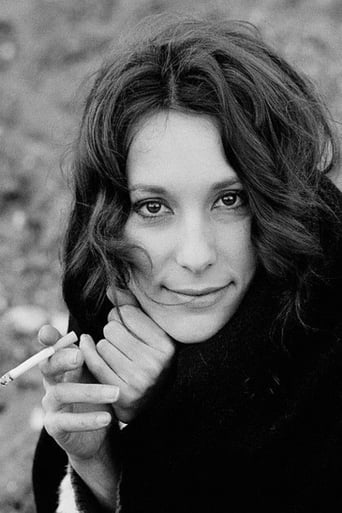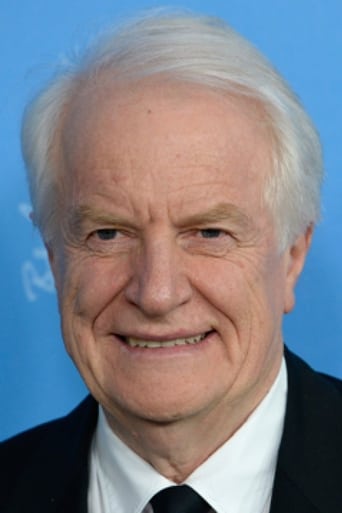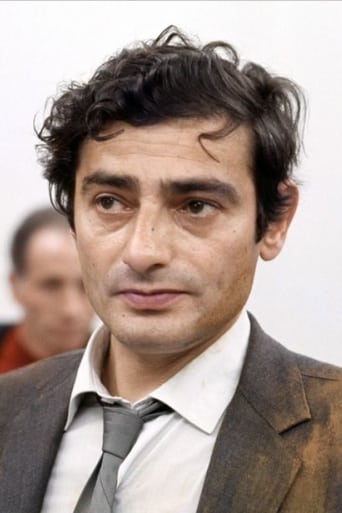Solemplex
To me, this movie is perfection.
Moustroll
Good movie but grossly overrated
Claysaba
Excellent, Without a doubt!!
TrueHello
Fun premise, good actors, bad writing. This film seemed to have potential at the beginning but it quickly devolves into a trite action film. Ultimately it's very boring.
morrison-dylan-fan
After watching the gripping Bride Wore Black I decided to take a look at the other credits of auteur co-writer (along with Jean-Loup Dabadie) /director François Truffaut.Reading reviews of Truffaut's other works,I spotted a title which appeared to mix sex Comedy with Film Noir!,which led to me getting ready to find out how gorgeous the girl is.The plot:Writing a thesis on female criminals, Stanislas Prévine learns about a prisoner called Camille Bliss,who is in jail for the murder of her dad,and her lover Arthur.Pushing the prison guard to give him a pass, Prévine starts holding a series of interviews with Bliss.Recording the interview so that he and his secretary can make a transcript of the minutes, Prévine begins to hear from Bliss about her wild lifestyle.As he goes deeper into Bliss's life, Prévine finds himself falling in love for her,and also starting to believe that Bliss has been wrongly imprisoned.View on the film:Kicking off Bliss's lifestyle with a young Bliss flying in the air,director François Truffaut, (who just a few weeks before filming had left a clinic after suffering from depression over his breakup with Catherine Deneuve) and cinematographer Pierre-William Glenn let their hair down for a wild child,who leaps across the movie from the tie- dye colour opening to the bitter laughs of Prévine's final interview with Bliss.Placing Bliss and Prévine in Film Noir settings from a grime covered prison to lovers on the run roads, Truffaut & Pierre-William Glenn slide the Film Noir into raunchy sex Comedy.Whilst never feeling fully relaxed, Truffaut makes the genre mash-up a wonderful adventure,with superbly delivered tracking shots following Bliss life of crime being joined by sexy frolics,which includes a race car album being played during sex.Rolling out their adaptation of Henry Farrell's pulp novel with Bliss telling her life story in rapid-fire monologues,the screenplay by Truffaut and Dabadie playfully take on the unreliable Film Noir narrator,by keeping Bliss's narration in a straight line,whilst the flashbacks uncover a life of petty crime and risqué encounters with men and their wives.Spending most of the title in flashbacks,the writers cut terrific interjections into Bliss and Prévine's interviews,which reveal Prévine to be pulled towards an alluring femme fatale.Entering the movie in bottle cap glasses, André Dussollier gives a great performance as Stanislas Prévine,with Dussollier giving Prévine a real passion for Bliss,whilst making sure to keep him an outsider by putting Prévine in a neat dorky tie. Firing the monologues across the screen in a rapid-fire manner,the gorgeous Bernadette Lafont (who also appears topless) gives an excellent performance as Bliss,thanks to Lafont giving Bliss a hilarious sparkle over the unlucky men in her life,and also wrapping Bliss in a mysterious femme fatale shade,as Prévine discovers how dangerous a gorgeous girl can be.
adrian290357
I must begin by admitting my headlong love for Truffaut's work. As connoisseur ratings go, this might not be his best film (Jules et Jim, Argent de Poche, Le Dernier Metro, Baisers Volés, Tirez sur le Pianiste, and Les 400 Coups are all at least as good and possibly better) but there is just so much life, tongue in cheek, unbridled pleasure in directing and in treating life as art, and the acting is so deceptively simple that I have to say this is probably my most favourite film by one of my most favourite directors. The initial sequence with the young dilettante's flatulent and cursing father kicking her rugby style sets the tone for the rest of the film, consistently pitting the stupidity of the male against the instinctive and openly unscrupulous intelligence of the leading female (there is hope yet in the typist but she is not the one all the men fall in love with...) Glorious comic touches sprinkle the film but if I had to select the cherry on this cake that would be the sequence where Denner, the rat exterminator, is waiting for Bernadette to come back from her visit to the singer. Look at how he tries to establish where the racing cars are that he hears but cannot see on the open road! Oh you must see this!
Cristi_Ciopron
Pastiches in the noble sense of the word, Truffaut's B movies, semi—serious and intelligent, are constructed on an unusual report—the delicious contrast between the finesse and the brutality/ brusqueness. Finesse of conception, of treatment, of methods; brutality and brusqueness of the primary literary sources—testifying of Truffaut's decadent attraction towards the brutal and the sordid (Truffaut himself had a rather naughty adolescence, and his physiognomy shows a certain human stuff, there are Lombrosian traces that somehow are at odds or seem to contradict his reputation of a gentle, emasculate human being and his high and refined intellectuality; he obviously wanted to look like the angelic leads—Léaud …;he did not).From this juxtaposing of finesse and brutality issue a nonchalance and a delicious contrast. The respective pictures are not _epigone flicks, they are not pastiches in this pejorative sense, they are not derivative—but ingenious, ironic, and contradictory. They are also highly cultured products—the same vacuum pomp found at Godard as well (with an entire different function in Truffaut's cinema, etc.). This artificiality might seem at first disconcerting; yet it is of a Hitchcockian efficiency, and strictly functional. This artificiality bears values—several values, either human, personal or artistic. It can not be dismissed as a defect. It is part of the charm.
Tito-8
This is one of the best French comedies that I have ever come across. Most of the humour here is pretty silly stuff, but somehow it works, thanks in large part to Lafont's outstanding performance. But what makes this film a truly great piece of work is the unforgettable ending, a finish that cements it as one of the best black comedies that you'll ever see.




